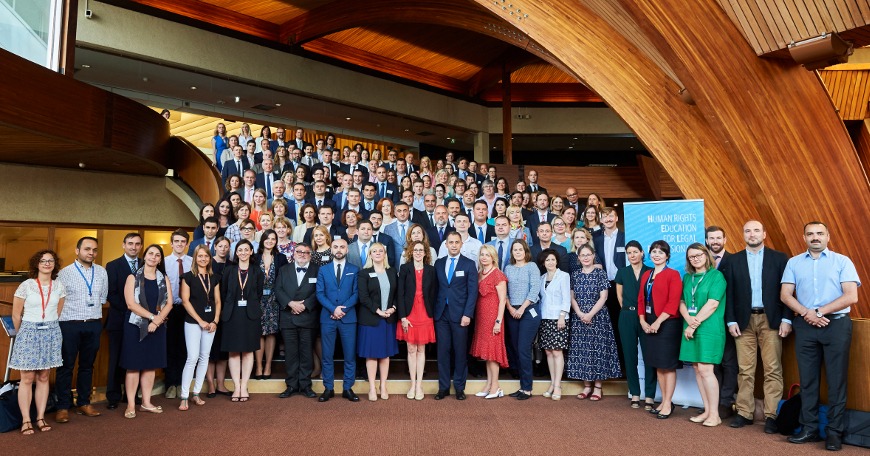The European Programme for Human Rights Education for Legal Professionals (HELP) supports the Council of Europe’s member states in implementing the European Convention on Human Rights (ECHR) at the national level. HELP does this by enhancing the capacity of judges, lawyers and prosecutors in all 47 member states to apply the Convention in their daily work.
Since 2015, HELP developed three open online courses to help legal professionals better understand how the European Convention on Human Rights and the case law of the European Court of Human Rights protects freedom of expression, hate speech, data protection and privacy rights. Another course focuses on legal reasoning in criminal judgments in the context of Article 10 (freedom of expression) of the ECHR. The topics are explored in a practical way, by using presentations, interactive screens, knowledge tests and reflective exercises.
The HELP online course on “Freedom of Expression” aims at assisting legal professionals in understanding the European standards concerning freedom of expression and effectively applying Article 10 of the ECHR at the national level. HELP also developed a course on “Hate Crime and Hate Speech” to assist legal professionals to better understand this growing problem by defining the relevant terms and concepts, outlining the applicable international and regional legal frameworks, and introducing available responses.
The ‘HELP in the 28’ course on “Data Protection and Privacy Rights” addresses gaps that exist in effective data protection and redress mechanisms was considerably low. The course reviews the scope of data protection and the right to privacy in the context of medical services, media, development of new technologies (i.e. GPS, drones, CCTV), e-communication and marketing, and workplace surveillance.
Lastly, to address the needs of judges who, in the process of domestic adjudication, are required to refer to the case law of the European Court of Human Rights, HELP designed a course on “Reasoning of Criminal Judgments.” It provides an overview of the relevant case law of the ECtHR developed under Article 10 and explores the ECHR requirements concerning the extent and content of reasoning of the domestic courts’ judgments.

